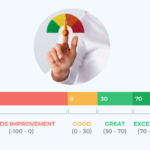- Book Instantly
- Standard Booking
- Standard Booking
- Emergency Request
| Book Instantly | Standard Booking | Standard Booking | Emergency Request | |
$99 15 min | $99 15 min | $500 45 min | $299 15 min | |
| Consult Format
Telephone
in-person videocall | Telephone call | Telephone call | Telephone call In-person Videocall | Telephone call |
| Availability Window | 1 hr before & 1 hr after (135 min) | 1 hr before & 1 hr after (135 min) | Set time (45 min) | Set time (15 min) |
| Lawyer Selection
Lawyers are assigned based on availability for instant and emergency requests
| Your choice | Your choice | Your choice | Next available |
| Payment Options
Standard booking receives credit card, e-transfer, paypal, debit, cheque, & cash.
| Credit Card Paypal | Credit Card E-transfer Paypal Debit Cheque Cash. | Credit Card E-transfer Paypal Debit Cheque Cash. | Credit Card Paypal |
| Speak to a Lawyer
Minimum notice to book.
| Within 1-2 business days* | Within 2-3 business days* | Within 2-3 business days* | Within 24 hours* | Get Started | Get Started | Get Started | Get Started |







